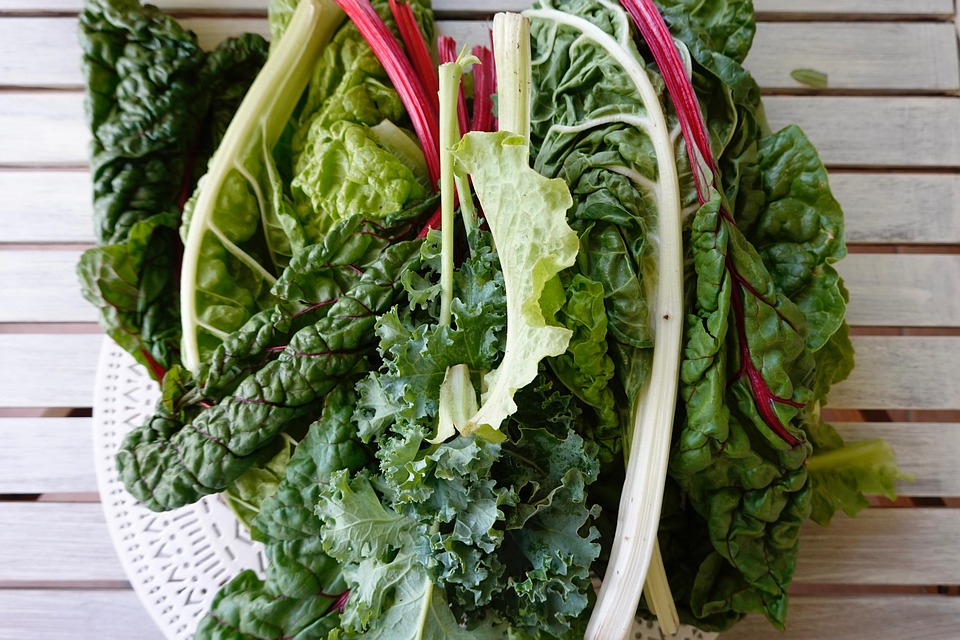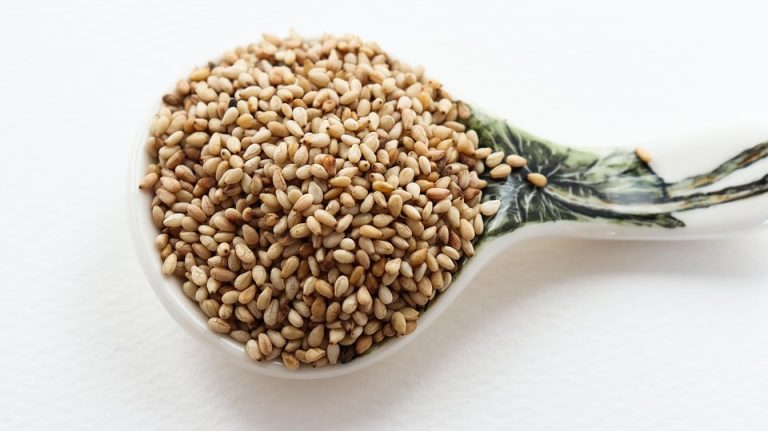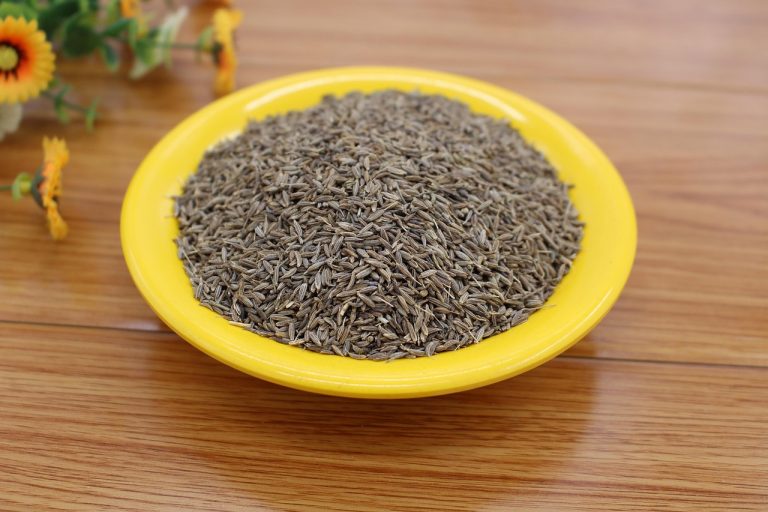Did you know that the vibrant greens you might casually toss into your salad can actually play a significant role in bone health? I’m talking about Swiss chard. Often overshadowed by its more popular leafy companions, this nutrient powerhouse packs a punch that might just surprise you. While many people associate strong bones primarily with calcium and dairy, Swiss chard offers a unique blend of vitamins and minerals that can contribute to a robust skeletal structure. Let’s dive into the five surprising benefits of Swiss chard for stronger bones.
Contents
1. Rich in Vitamin K: The Bone Builder
When you think about bone health, vitamin K might not be the first nutrient that comes to mind. But let’s be real—this vitamin is crucial for bone metabolism. Swiss chard is loaded with vitamin K, which plays an essential role in the synthesis of osteocalcin, a protein that helps bind calcium to the bone matrix.
Studies indicate that adequate vitamin K intake can significantly reduce the risk of fractures. In fact, a study published in the American Journal of Clinical Nutrition found that higher dietary vitamin K intake was associated with increased bone mineral density (Booth et al., 2013). So, if you’re looking to fortify your bones, incorporating Swiss chard into your diet might just be a smart move.
Pros:
- Supports calcium binding in bones.
- May reduce fracture risk.
Cons:
- Individuals on anticoagulants should consult healthcare providers, as vitamin K can interfere with these medications.
2. A Source of Magnesium: The Unsung Hero
Magnesium often gets overlooked in discussions about bone health, but it’s a critical player in the game. Swiss chard is an excellent source of magnesium, which is essential for converting vitamin D into its active form. This is particularly important, as vitamin D helps your body absorb calcium—another key nutrient for bone strength.
A study published in Nutrients highlighted that magnesium deficiency can lead to osteoporosis and increased fracture risk (Rude, 2012). So, not only does Swiss chard provide magnesium, but it also aids in the metabolism of other bone-supporting nutrients.
Pros:
- Vital for vitamin D activation.
- Helps maintain bone density.
Cons:
- Excessive magnesium can cause digestive issues, so moderation is key.
3. Packed with Calcium: The Bone’s Best Friend
You might think of dairy products when it comes to calcium, but Swiss chard should definitely be on your radar. One cup of cooked Swiss chard provides about 100 mg of calcium. While that might not seem like a lot compared to a glass of milk, it can still contribute to your daily intake, especially when combined with other calcium-rich foods.
Calcium is often touted as the cornerstone of bone health, and for a good reason. It’s essential for bone structure and function. A strong skeleton requires a steady supply of calcium, and incorporating Swiss chard into your meals can help provide that.
Pros:
- Contributes to daily calcium intake.
- Supports bone structure.
Cons:
- The presence of oxalates in Swiss chard can inhibit calcium absorption, so balance with other calcium sources is advised.
4. Antioxidant Properties: Fighting Inflammation
Swiss chard is more than just a source of vitamins and minerals; it also boasts impressive antioxidant properties. Rich in flavonoids and polyphenols, Swiss chard helps combat oxidative stress and inflammation in the body. Chronic inflammation has been linked to bone density loss and osteoporosis.
Research from The Journal of Nutritional Biochemistry suggests that antioxidants can play a role in preventing bone loss by reducing inflammation (Kumar et al., 2017). By including Swiss chard in your diet, you’re not just nourishing your bones; you’re also giving your body a fighting chance against inflammation.
Pros:
- Reduces oxidative stress.
- May help prevent bone loss.
Cons:
- While antioxidants are beneficial, they should be part of a balanced diet rather than a sole focus.
5. Versatile and Delicious: Easy to Incorporate
Let’s face it: If a food is hard to prepare or doesn’t taste good, chances are you won’t eat it regularly. Swiss chard shines in this department. Its mild flavor makes it a versatile addition to various dishes—from salads and stir-fries to soups and smoothies. You can sauté it, steam it, or even use it as a wrap for other ingredients.
The ease of incorporating Swiss chard into your meals means you’re more likely to reap its benefits consistently. So, whether you’re tossing it into a veggie stir-fry or blending it into a smoothie, you’re not just treating your taste buds; you’re also doing wonders for your bone health.
Pros:
- Easy to include in various recipes.
- Mild flavor complements many dishes.
Cons:
- Some may find the texture of cooked Swiss chard unappealing.
FAQs
1. How often should I eat Swiss chard for bone health?
Incorporating Swiss chard into your diet a few times a week can be beneficial. Aim for a variety of leafy greens to ensure you’re getting a broad spectrum of nutrients.
2. Can I eat Swiss chard raw?
Yes! Swiss chard can be eaten raw in salads. Just be aware that cooking can help reduce oxalate levels, which may inhibit calcium absorption.
3. Is Swiss chard better than other leafy greens?
Swiss chard has a unique nutrient profile that offers specific benefits, especially for bone health. However, other greens like kale and spinach also provide valuable nutrients, so variety is key.
4. What are some easy recipes to try with Swiss chard?
You can sauté Swiss chard with garlic and olive oil, add it to omelets, or blend it into smoothies. It’s also great in soups and stews.
Conclusion
Swiss chard may not be the first food that comes to mind when you think about building stronger bones, but it certainly deserves a spot on your plate. With its rich content of vitamin K, magnesium, calcium, and antioxidants, this leafy green offers a plethora of benefits that can help fortify your skeletal health. Plus, its versatility in the kitchen means that you can enjoy it in numerous delicious ways.
So, the next time you’re at the grocery store, don’t overlook that bunch of Swiss chard. It might just be the leafy green that elevates your bone health game. Remember, though, that a well-rounded diet and lifestyle are essential for overall well-being. And as always, it’s wise to consult with a healthcare provider for personalized advice.
This article is for educational purposes only and is not a substitute for professional medical advice. Always consult a qualified healthcare provider before making changes to your health routine.
References
-
Booth, S. L., et al. (2013). Vitamin K and Bone Health: A Review. American Journal of Clinical Nutrition, 98(3), 723-727. https://doi.org/10.3945/ajcn.113.068583
-
Rude, R. K. (2012). Magnesium deficiency: A cause of heterogeneous disease. Nutrients, 4(5), 598-613. https://doi.org/10.3390/nu4050598
-
Kumar, S., et al. (2017). Antioxidant Effects of Dietary Polyphenols in Bone Health. The Journal of Nutritional Biochemistry, 42, 1-14. https://doi.org/10.1016/j.jnutbio.2017.02.002
Get Your FREE Natural Health Guide!
Subscribe now and receive our exclusive ebook packed with natural health tips, practical wellness advice, and easy lifestyle changes, delivered straight to your inbox.




